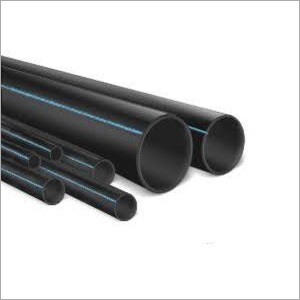Texas hdpe pipe manufacturer: Sustainable Innovations
Wiki Article
Comprehending the Secret Advantages of HDPE Pipe for Water and Wastewater Management
Using HDPE pipeline in water and wastewater administration offers numerous advantages that merit consideration. Its remarkable toughness and long life expectancy make it a recommended selection for many tasks. Furthermore, the product's resistance to rust and chemical damages improves its integrity in different settings. Nevertheless, the benefits prolong beyond just durability and resistance. Discovering its cost-effectiveness and ecological influence discloses even much more compelling reasons for its widespread fostering in modern-day facilitiesPhenomenal Durability and Longevity

HDPE pipe stands apart for its outstanding sturdiness and longevity, making it a favored option in water administration systems. Created from high-density polyethylene, these pipes can withstand substantial pressure and tension, guaranteeing dependable efficiency over time. Their robust nature allows them to sustain severe ecological problems, consisting of temperature fluctuations and dirt motions, which can trigger other materials to stop working.
The life-span of HDPE pipelines typically exceeds 50 years, offering an affordable option for municipalities and sectors alike. Furthermore, the material's light-weight properties streamline setup, reducing labor prices and timeframes. This resilience minimizes the need for regular repairs or substitutes, additionally boosting its economic allure.
In water monitoring applications, the integrity of HDPE pipelines means less disturbances and improved solution connection, making them essential to sustainable framework growth. The mix of longevity and longevity solidifies HDPE's function as a cornerstone in effective water management solutions.

Resistance to Corrosion and Chemical Damage
While many materials surrender to deterioration and chemical damages in time, HDPE pipes display impressive resistance, making them excellent for various water monitoring applications. This strength stems from the molecular framework of high-density polyethylene, which is naturally non-reactive and does not wear away like steels or deteriorate from direct exposure to harsh chemicals. Because of this, HDPE is extremely efficient in environments with hostile materials, such as wastewater systems that might consist of acids, bases, and natural solvents.
Additionally, HDPE pipes can withstand ecological elements such as soil acidity and saline conditions, additionally enhancing their suitability for diverse applications (American Plastics HDPE Pipe Manufacturing). Their ability to maintain architectural integrity over time decreases the threat of leakages and failures, which is crucial in making certain the security and dependability of water circulation and wastewater administration systems. The resistance to deterioration and chemical damages significantly adds to the general effectiveness and long life of HDPE piping services.
Cost-Effectiveness and Financial Advantages
When thinking about the monetary effects of water administration systems, the cost-effectiveness of HDPE pipes becomes obvious. These pipes use lower setup and maintenance prices compared to standard products like steel or concrete. Their light-weight nature streamlines transport and setup, causing lowered labor costs. Additionally, HDPE pipelines display a lengthy life expectancy, usually exceeding half a century, which translates to fewer replacements and long-term financial savings.Furthermore, the resistance of HDPE to deterioration and chemical damages minimizes the demand for expensive repair work and substitutes. The pipes additionally sustain effective water circulation, decreasing power expenses linked with pumping systems. By minimizing leakages and water loss, HDPE pipelines add to considerable economic advantages for districts and sectors alike. Generally, the preliminary financial investment in HDPE piping can generate substantial monetary returns over the life-span of the water administration system, making it a prudent choice for sustainable infrastructure development.
Ecological Sustainability and Lowered Effect

Versatility and Adaptability in Installation
Due to their distinct residential or commercial properties, HDPE pipes provide remarkable convenience and adaptability in check here installation, making them ideal for a large range of applications. Their light-weight nature enables less complicated handling and transport, reducing labor expenses and installment time. HDPE pipelines can be bent and formed to fit various terrains and task needs, which is especially useful in testing environments.In addition, their resistance to deterioration and chemical damages enables for installment in varied setups without the demand for specialized safety coverings. The ability to fuse joints produces a continual, leak-free system, enhancing the general stability and reliability of the installment. HDPE's flexibility also accommodates ground activity, decreasing the threat of damages in locations susceptible to shifting dirt. Overall, these qualities make HDPE pipes not just functional however also a favored choice for water and wastewater management systems.
Regularly Asked Concerns
How Does HDPE Pipe Compare to PVC in Water Management Applications?
HDPE pipeline uses superior versatility, resistance to corrosion, and sturdiness contrasted to PVC. Its lighter weight assists in simpler installment, while its long lifespan minimizes replacement costs, making HDPE a recommended option in water management applications.What Is the Life-span of HDPE Pipes Under Regular Problems?
Under common conditions, HDPE pipelines can have a lifespan varying from 50 to 100 years. Their longevity and resistance to rust contribute to their long-lasting performance in numerous applications, making them a trustworthy choice for facilities.Are HDPE Water Lines Recyclable After Their Life Span?
Yes, HDPE pipes are recyclable after their service life. Texas hdpe pipe manufacturer. They can be processed and repurposed right into brand-new products, substantially minimizing ecological influence and promoting sustainability within the market, making them an environmentally friendly choice for piping solutionsWhat Is the Installment Process for HDPE Pipes?
The installation process for HDPE pipes involves site preparation, trenching, pipeline blend or mechanical joining, backfilling, and pressure screening. Appropriate techniques assure a durable and reliable system for transporting water and wastewater properly.Can HDPE Water Lines Be Made Use Of for Both Safe And Clean and Non-Potable Water Solutions?
Yes, HDPE pipelines can be used for both drinkable and non-potable water systems. Their flexibility, resilience, and resistance to deterioration make them appropriate for different applications, making sure risk-free and efficient transport of water in different contexts.Report this wiki page